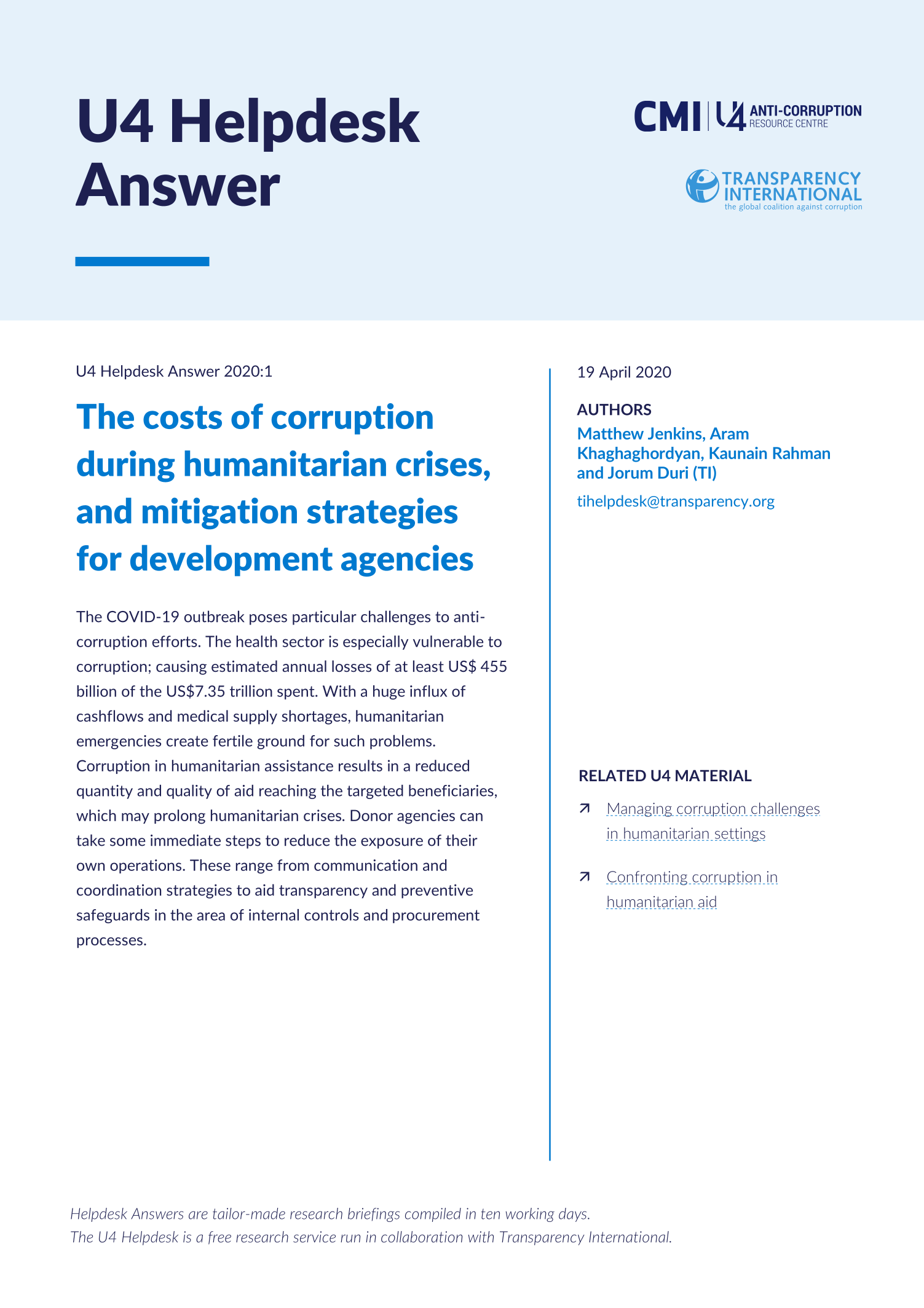Main points
- Corruption in humanitarian assistance results in a reduced quantity and quality of aid reaching the targeted beneficiaries, which, as a result, could prolong humanitarian crises.
- Corruption is occasionally seen as a cost of doing business in humanitarian contexts, especially where there is a perceived trade-off between exigency and due diligence. Yet anti-corruption procedures and accountability mechanisms are some of the best instruments to ensure that humanitarian assistance is being used effectively and donors’ objectives are achieved.
- There are a number of immediate steps that donor agencies can take to tackle corruption in the context of the COVID-19 crisis, regardless of their existing level of preparedness. These range from communication and coordination strategies to aid transparency and preventive safeguards in the area of internal controls and procurement processes.


